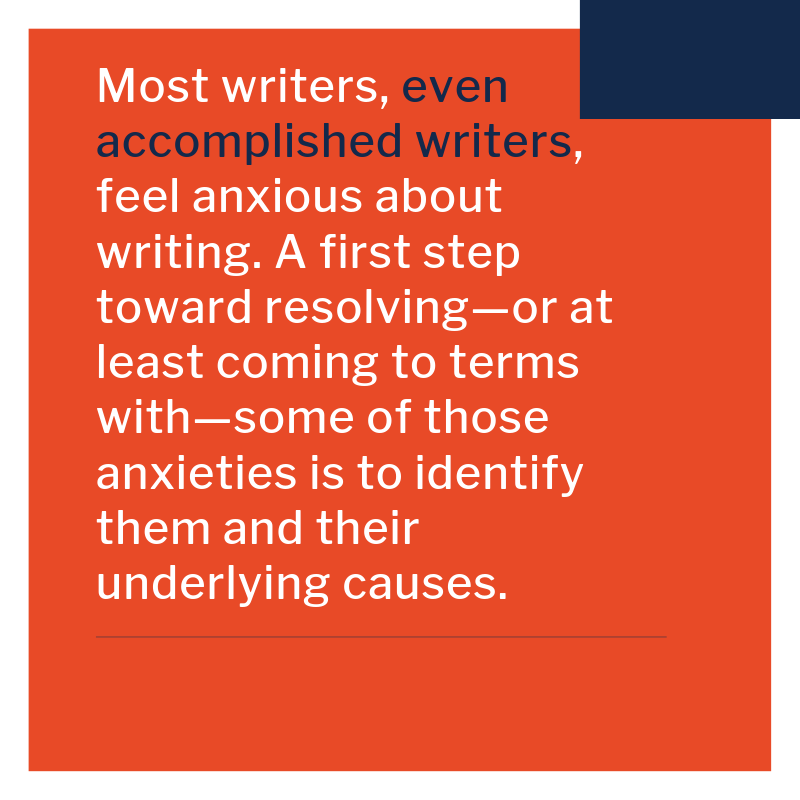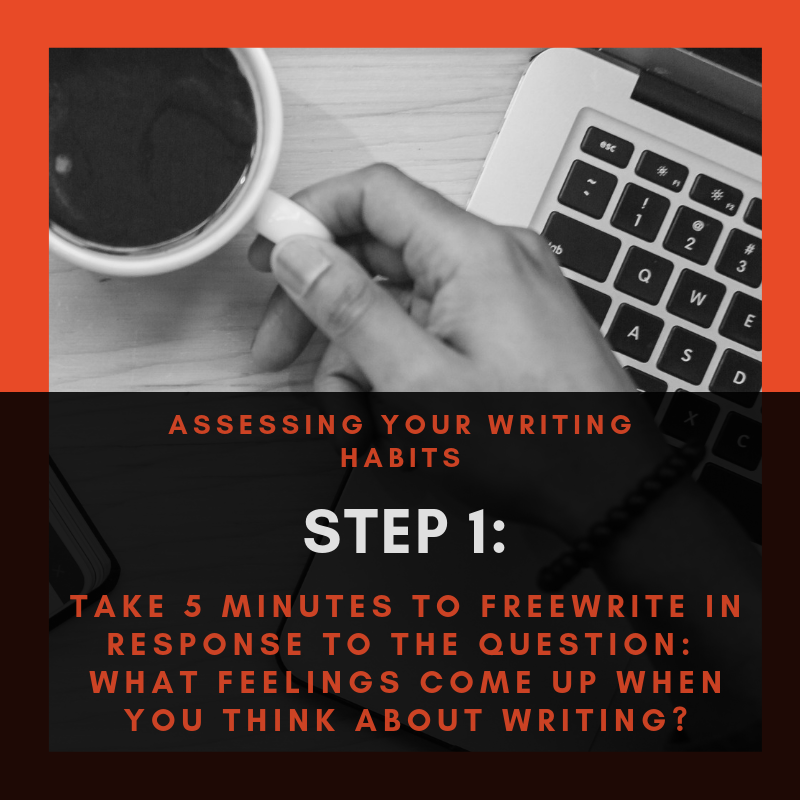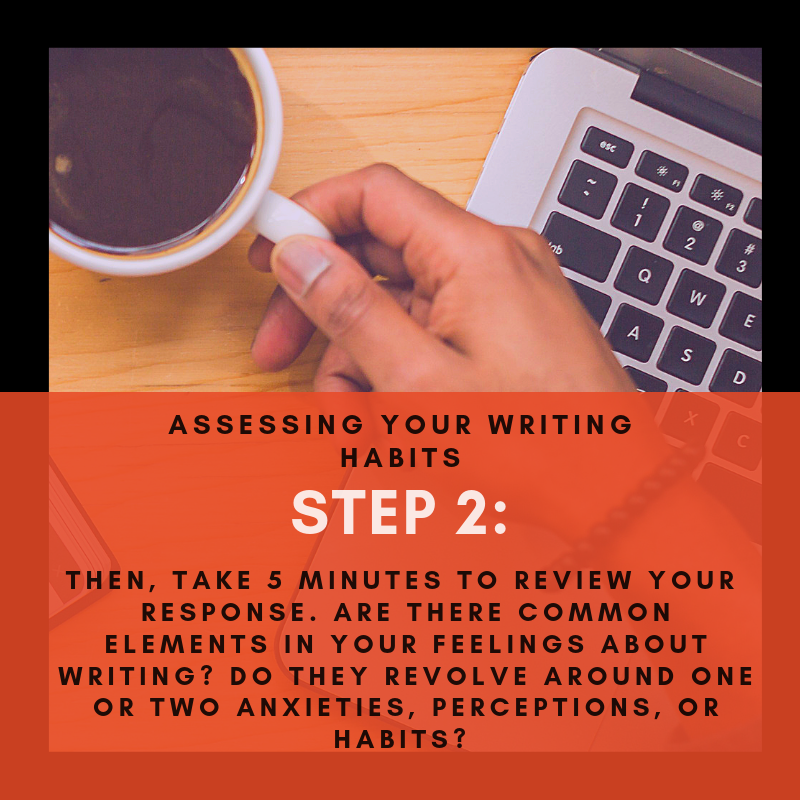What is a Personal Writing Inventory?
Many writers want to change their writing habits and the ways they feel about writing. Taking a writing inventory provides an important first step toward (re)committing to your writing, allowing you to better understand and come to terms with feelings and emotions around writing experiences. The goal of completing a writing inventory is to learn how the affective dimensions you bring to writing impact your processes and, ultimately, to overcome negative feelings and habits around writing.

In her successful book Writing Your Journal Article in 12 Weeks (2009), Wendy Belcher recounts what her students said when she asked them to reflect on their feelings about writing:
I feel both terror and boredom….I get depressed when I think about having to write….I feel discouraged because I feel like I have never done enough research to start writing…..I have fun in the beginning but I really hate revising….I enjoy revising, but I hate getting that first draft down….My advisor is so critical that whenever I think of writing I feel inadequate….I feel like there are rules that everyone knows but me….I feel like procrastinating whenever I think of how much writing I have to do and how little I have done…(3).
The list goes on. The main point here is that most writers, even accomplished writers, feel anxious about writing. A first step toward resolving—or at least coming to terms with—some of those anxieties is to identify them and their underlying causes.
Reflecting on Your Writing Habits


Step 1:
Take 5 minutes to freewrite in response to the question: What feelings come up when you think about writing?
Step 2:
Then, take another 5 minutes to look over that response. Are there common elements in your feelings about writing? Do they revolve around one or two anxieties, perceptions, or habits? Do they point to a particular fear?
Understanding our writing anxieties helps us to anticipate and overcome obstacles. Sometimes we realize that those obstacles are really what Paul Silvia (2014) has called “specious barriers” to writing, that is, our reasons for not writing may be mental blocks or procrastination behaviors rather than actual barriers. Writers regularly cite “specious barriers” like:
- “I’m just too busy!” Most writers can accomplish more in regular, moderate periods of writing—even 15-30 minutes a day—than they can in infrequent binge-writing sessions (Boice, 1997). Set a writing schedule and stick with it. One to 4 hours a day is ideal for most writers.
- “Teaching preparation takes up all my extra time.” Certainly, teaching can be time-consuming, especially for graduate students and assistant professors who are new to it. The best solution is to set limits on your preparation time. As Belcher asserts, “You should learn to do this if you plan a career in academia since preparation will be an ongoing reality. Schedule your writing time before your teaching prep time.”
- “I have to read just one more book.” Many graduate students feel they need to know everything about a topic before writing about it. Instead of getting lost in the “forest of research,” wandering deeper and deeper as you track bibliographic references from one book or article to the next, Belcher and others recommend doing your writing and research at the same time: “The point here is that you do not have to ‘finish’ research before you start writing. You do not have to complete your literature search or finalize your data analysis or even read your advisor’s book. … Start writing and find out what you know.”
- “I’m waiting for inspiration.” The myth of inspiration is pernicious and widespread. Writing is work, and like all work, it’s more enjoyable and comes easier some days than others. In fact, three decades of research on writing productivity suggests that writing daily produces more writing and more ideas, and writers produce more when they have positive social networks around writing.
Step 3:
It’s important to take time to assess your other writing behaviors, as well. Take a few minutes to freewrite on these questions:
- At what time of day am I most productive in my writing?
- Where am I most productive in my writing?
- What is my typical writing process?
- At what point(s) in the process do I feel most stressed or stuck?
- At what points in the writing process do I feel most confident?
- What are my strengths as a writer?
- What kind of writing do I enjoy the most?
- What kind of writing do I find most challenging?
- How do I track progress toward my writing goals?
- How do I reward myself when I accomplish my goals?
Use this exercise to help you better structure your writing life and create positive writing habits.
Related Links:
- Re-Committing to a Regular Writing Routine
- Staying on Track with Theses and Dissertations
- Writing and Well-Being
- Writing Groups and Retreats
